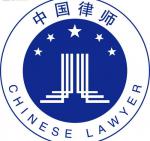COURT OF APPEAL FOR BRITISH COLUMBIA
Citation:
Insurance Corporation of British Columbia v. Eurosport Auto Co. Ltd.,
2007 BCCA 279
Date: (略)
Docket: CA031692
Between:
Insurance Corporation of British Columbia
Respondent
(Plaintiff)
And
Eurosport Auto Co. Ltd., Hwang Trading Co. Ltd., Frederick Ngok Hwang,
Patti Sze Ping Hwang, and Frederick Ngok Hwang and
Patti Sze Ping Hwang, doing business as, Hwang Porsche Parts,
Hwang Trading Porsche Parts and Hwang Trading Glass
Appellants
(Defendants)
Before:
The Honourable Madam Justice Prowse
The Honourable Mr. Justice Mackenzie
The Honourable Madam Justice Saunders
H. Wood and G. Fahey
Counsel for the Appellant
F. Potts and B. Martyniuk
Counsel for the Respondent
Place and Date of Hearing:
Vancouver, British Columbia
March 22 & 23, 2007
Place and Date of Judgment:
Vancouver, British Columbia
May 11, 2007
Written Reasons by:
The Honourable Madam Justice Prowse
Concurred in by:
The Honourable Mr. Justice Mackenzie
The Honourable Madam Justice Saunders
Reasons for Judgment of the Honourable Madam Justice Prowse:
INTRODUCTION
[1] This appeal arises out of a civil action commenced by the Insurance Corporation of British Columbia (“ICBC”) on December 10, 1998, claiming damages, including punitive damages, against Eurosport Auto Co. Ltd. (“Eurosport”), Mr. and Mrs. Hwang, and others, for fraud and conspiracy to defraud. In related proceedings, Mr. Hwang and Eurosport were convicted under s. 42.1 of the Insurance (Motor Vehicle) Act, R.S.B.C. 1996, c. 231 (the “Act”) with respect to six of the transactions which are included in the civil action. Their convictions were upheld on appeal (R. v. Hwang, [2007] B.C.J. No. 279 (C.A.) (QL)).
[2] The civil action culminated in two orders made by the trial judge on February 6, 2004 (the “first” order) and December 17, 2004 (the “second” order) which are the subject of this appeal.
[3] The first order grants judgment against the appellants for compensatory damages ($47,616.63), investigative costs ($28,621.30), and punitive damages ($50,000 against Eurosport, $50,000 against Mr. Hwang, and $15,000 against Mrs. Hwang). It also grants the appellants judgment against ICBC on a portion of their counterclaim in the amount of $82,016.95, to be set off against the damages awarded to ICBC. (The parties agree that the correct amount of the judgment on the counterclaim should be $91,250.)
[4] The second order dismisses the balance of the appellants’ counterclaim, and grants ICBC special costs calculated from December 10, 1998 (the date of issuance of the Writ) to July 9, 2000, and double special costs from July 10, 2000 (the date of the offer to settle) to the date of judgment. It also grants ICBC pre-judgment interest on all compensatory and punitive damages and provides that there shall be no prejudgment interest on the amount of the appellants’ counterclaim.
ISSUES ON APPEAL
[5] The appellants submit that the trial judge erred in:
(a) failing to find that ICBC’s pursuit of the civil action was for the predominant purpose of exacting more punishment from the appellants in the form of punitive damages and that it constituted an abuse of process;
(b) failing to give the appellants any credit in the assessment of compensatory damages for parts and labour provided by them with respect to the impugned transactions and from which they allege ICBC derived a benefit;
(c) failing to grant the appellants court order interest on their counterclaim;
(d) awarding double special costs; and
(e) wrongfully applying the principles governing the award of punitive damages.
[6] During the course of the appeal, counsel for ICBC conceded that there was no basis for refusing the appellants interest on their counterclaim.
[7] The primary import of the appellants’ submission is that the trial judge erred in imposing awards of punitive damages and double special costs which were unduly punitive and which were not in accord with the applicable law underlying such awards.
RESULT
[8] For the reasons which follow, I would allow the appeal in part by deleting the awards for punitive damages and double special costs, and by varying the judgment on the counterclaim to award the appellants $91,250 plus court order interest.
BACKGROUND
[9] The nature of the relationship between ICBC and the appellants giving rise to both the civil and quasi-criminal proceedings is briefly described by the trial judge at paras. 1-8 of his reasons for judgment:
The plaintiff in this action (ICBC) seeks to recover damages, special damages and punitive and/or exemplary damages from the defendants. The plaintiff alleges that between January 3, 1996 and February 8, 1998, the defendants Frederick Ngok Hwang (Fred Hwang) and Patti Sze Ping Hwang (Patti Hwang) wrongfully and maliciously conspired together to defraud and injure the plaintiff by causing the corporate defendants (Eurosport and Hwang Trading) and the proprietorships (Hwang Porsche Parts, Hwang Trading Porsche Parts and Hwang Trading Glass) to submit fraudulent documents and make false and/or fraudulent representations to the plaintiff for the purpose of obtaining payments they were not entitled to.
These allegations arise in relation to billings or contracts between ICBC and Eurosport for automotive body shop repairs. The repairs were all to be done on vehicles insured by ICBC and were paid for by ICBC.
Eurosport was, at the material times, by written agreement between itself and ICBC, an accredited and registered vendor and held an ICBC Vendor Number. Under the agreements Eurosport was entitled to directly bill ICBC for automotive body repairs of vehicles insured by ICBC. This arrangement avoided the process of each individual insured having to pay for the repairs and then seek reimbursement from their insurer.
In August of 1996, Eurosport was also accredited (on their application) under ICBC’s c.a.r. Shop Collision Repair accreditation program. The formal written accreditation agreement is dated August 26, 1996, and was executed on behalf of Eurosport by Fred Hwang.
In September and October 1997, after concerns had surfaced about Eurosport’s activities, a series of letters were exchanged, eventually leading to a written notice of termination dated January 19, 1998. On February 9, 1998, the accreditation agreement was terminated.
The defendants, in their pleadings, deny any such conspiracy to defraud the plaintiff or that any of them fraudulently advanced claims for parts and/or services to the plaintiff as alleged. They say that any errors in their documentation were simple mistakes. They also say, in response to the claim, that Eurosport and Hwang Trading purchased and maintained an inventory of new and used parts, particularly Porsche parts, which were utilized from time to time in the repair of vehicles.
The defendants go on to plead that all work for which payment from the plaintiff was claimed was performed by them and that the parts utilized were authorized by the plaintiff.
In their counterclaim, the defendants seek damages, punitive and aggravated damages, and special costs for the plaintiff’s refusal to pay Eurosport for a series of completed repairs. A second claim for defamation was severed from the present action and stayed by an order of May 5, 2000.
[10] In late 1997, ICBC investigators took a random sample of 300 Eurosport files, which ultimately resulted in 14 charges relating to seven transactions being laid against the appellants under s. 42.1 of the Act. The civil proceedings commenced in 1998 involved an additional 73 transactions.
[11] On March 16, 2001, a provincial court judge found Mr. Hwang and Eurosport guilty on 12 counts under s. 42.1. Mrs. Hwang was acquitted. An appeal by Mr. Hwang and Eurosport to the Supreme Court was allowed on July 25, 2002 on the basis that s. 42.1 of the Act was ultra vires the province. That decision was overturned on further appeal to this Court (R. v. Eurosport Auto Co. (2003), 225 D.L.R. (4th) 277), and leave to appeal to the Supreme Court of Canada was refused, [2003] S.C.C.A. No. 322.
[12] Ultimately, Eurosport and Mr. Hwang were sentenced to fines in the amount of $60,000 each with respect to the impugned transactions in the quasi-criminal proceedings.
DISCUSSION OF ISSUES
(a) Abuse of Process
[13] Counsel for the appellants submits that ICBC commenced the civil action for the express purpose of obtaining punitive damages against the appellants in circumstances where the appellants had already suffered significant punishment by a combination of the substantial fines imposed upon them in the quasi-criminal proceedings under s. 42.1 of the Act, the publicity and ensuing stigma they suffered as a result of those proceedings, and the effective loss of their livelihood when ICBC terminated their contract and wrongfully withheld the payments which formed the subject of the appellants’ counterclaim. In essence, counsel submits that ICBC abused its position of power as a Crown corporation by marshalling all of the resources at its disposal to punish the appellants, in particular, for their fraudulent conduct. Counsel submits that it is apparent that ICBC did so with the intention of “breaking” the appellants and holding them out as an example of what would happen to other auto repair operators if they fell afoul of their legal and contractual obligations to ICBC.
[14] Counsel for the appellants submits that, although abuse of process was not pleaded or argued at trial, the trial judge should have exercised his inherent jurisdiction to prevent the abuse from occurring by ordering a stay of the civil proceedings. In effect, counsel submits that ICBC exacted its pound of flesh from the appellants in the proceedings under s. 42.1 of the Act, and that commencing and pursuing the civil proceedings with such zeal was a form of overkill.
[15] In my view, the appellants’ submission founded on abuse of process cannot succeed. While it is apparent from the opening and closing remarks of ICBC’s counsel at trial that punitive damages were a significant aspect of ICBC’s civil claim, ICBC was also seeking compensatory damages and investigative costs arising from the appellants’ fraud. It was suing to protect itself (and the public) against the systemic small-scale frauds which were being perpetrated upon it by the appellants and others with whom ICBC was doing business. It had two avenues available to it in that regard: prosecution under s. 42.1 of the Act, and civil action. It was not required to elect remedies, but was entitled to pursue both. In that respect, I note that s. 42.1(8) of the Act expressly provides that:
(8) Nothing in this section precludes the corporation . . . from taking any civil action or exercising any right of recovery against a person who commits an offence under this section.
[16] This provision is consistent with the distinction between criminal or quasi-criminal proceedings, in which the parties are the state and the accused, and civil proceedings, in which the state is not a party. The fact that fines or penalties had been levied pursuant to s. 42.1 of the Act (against Eurosport and Mr. Hwang) did not preclude ICBC from seeking punitive damages for instances of fraud proven in the civil proceedings, most of which were not the subject of charges under the Act. Nor did the fines imposed under the Act address ICBC’s right to compensation for the losses it suffered as a result of the appellants’ fraudulent acts. The fines imposed under the Act were payable to the Crown, not to ICBC as victim of the fraud.
[17] Further, as the trial judge pointed out, the appellants were not singled out for prosecution and there is no evidence of any personal animus between ICBC and the appellants. Rather, ICBC embarked on a general policy of seeking out and pursuing autobody operators who were perpetrating frauds in small amounts but on a systemic basis. It was entitled to do so to protect its own interests by pursuing any and all instances of fraud which were disclosed by its investigations. To the extent the appellants were economically devastated by virtue of their loss of ICBC’s business, that consequence is attributable directly to their own fraudulent conduct. As counsel for ICBC aptly stated, ICBC had no legal obligation to do business with fraudsters.
[18] The trial judge also found that the actions of the appellants had prolonged the proceedings with an attendant increase in costs. Therefore, to the extent the appellants say their economic plight was exacerbated by the costs of the extended trial and pre-trial matters, they are complaining, in large part, of self-inflicted wounds.
[19] In summary, I find the appellants’ submission that ICBC’s civil action constituted an abuse of process to be without a factual or legal foundation. I would not give credence to this ground of appeal.
(b) Calculation of Damages – Failure to Give Credit to Appellants
[20] Counsel for the appellants submits that, in calculating compensatory damages, the trial judge failed to attribute any credit to the appellants on a “value received” basis for parts and labour the appellants provided in relation to the transactions which were found to be fraudulent. Thus, for example, when Eurosport knowingly installed a part which did not meet the specifications contained in the form stipulated (the “CL-14”), counsel submits that the labour and parts supplied were of some value which should have been credited against the amount claimed by ICBC in relation to the transaction. Counsel further submits that since the onus was on ICBC to prove its damages, it followed that ICBC was bound to prove its net loss; that is, its total loss less the credit for value received.
[21] This submission is without merit. The appellants provided no pleading or argument at trial in support of the proposition that ICBC had obtained a benefit from these fraudulent transactions. Had they alleged an offsetting benefit, the onus would have been on them to establish it by leading evidence of value in mitigation of damages. The basis for establishing such value was wholly within the control of the appellants. In response to the suggestion that it was obvious that some value was provided, I note that there was evidence to suggest that part of Eurosport’s stock came from unidentified sources unaccompanied by invoices. Further, the documents ICBC received from the appellants were themselves suspect.
[22] During submissions, counsel for the appellants conceded that he was not seeking to have this issue remitted to the trial court for consideration. That being so, and given the dubious merit of this ground of appeal, I do not propose to address it further.
(c) Court Order Interest
[23] The appellants were granted judgment on their counterclaim in the amount of $82,016.95. As earlier noted, counsel on appeal agree that the proper amount was $91,250. The trial judge found that the amount awarded to the appellants under its counterclaim should be “offset” against the total amount awarded to ICBC on its claim. He also stated that the amount of the counterclaim would not bear interest, apparently on the basis that there was some justification for ICBC withholding these funds.
[24] On appeal, counsel for ICBC acknowledged, rightly in my view, that there was no basis for denying the appellants court order interest on the amount of their counterclaim. It is a pecuniary judgment within the meaning of s. 1(1) of the Court Order Interest Act, R.S.B.C. 1996, c. 79, which provides:
1(1) Subject to section 2, a court must add to a pecuniary judgment an amount of interest calculated on the amount ordered to be paid at a rate the court considers appropriate in the circumstances from the date on which the cause of action arose to the date of the order.
[25] I would, therefore, vary the order of the trial judge to provide that the appellants are entitled to court order interest on $91,250 calculated in accordance with the Court Order Interest Act.
(d) Double Special Costs
[26] Counsel for the appellants rightly concedes that it was open to the trial judge to award special costs against the appellants. The issue is whether he erred in awarding double special costs.
[27] During the course of the appeal, the Court was advised that the amount of ICBC’s legal costs, including disbursements and taxes, from the date of the Writ to the first order was approximately $435,000, of which approximately $340,000 is fees. This excludes the costs of the proceedings relating to the counterclaim and special costs, leading to the second order. It is fair to assume, therefore, that ICBC’s overall costs of the entire trial will approach $500,000. Counsel for ICBC submits that, of this amount, it can expect to receive only approximately 80% of its actual fees as special costs. Assuming this is so, I would estimate recovery of special costs, excluding disbursements and taxes, to be roughly in the range of $300,000-$315,000. Double special costs, exclusive of taxes and disbursements, would be substantially higher. Counsel for ICBC advised this Court that ICBC would not seek to recover more than full indemnity costs, but that concession is irrelevant to the question of whether the trial judge erred in awarding double special costs in the first instance.
[28] In that regard, ICBC made two offers to settle this action in the form of “with prejudice” letters dated July 10, 2000 and January 30, 2001. The trial judge characterized these as “Calderbank letters” and found that “in virtually every particular the offers were exceeded in the ultimate orders obtained at trial.” Counsel for ICBC concedes on appeal that, although the trial judge assessed double special costs from the date of the first offer, the relevant offer for the purpose of determining costs is the second offer which, by its terms, superseded the first offer.
[29] The appellants challenge the award of double special costs on several grounds. Firstly, they say that the offer of settlement was not in the form of a Calderbank letter, primarily because it contained terms which the appellants could not reasonably have been expected to accept. Secondly, they say that the trial judge erred in finding that Rule 37 applied to the offer. Thirdly, they say that Rule 37A does not apply to the offer. Fourthly, they say that neither Rule 37 nor Rule 37A permits an award of double special costs in any event. Finally, they say that there is no residual discretion in the court to award double special costs apart from Rules 37 and 37A.
[30] I note that none of these arguments appears to have been made at trial, perhaps because the appellants were then acting in person.
[31] In my view, there is a serious question as to whether the offer made by ICBC can be said to fall properly within the description of a Calderbank letter. The letter itself is divided into two parts. The first part contains an offer to settle conditional on Mr. Hwang admitting that he and Eurosport defrauded ICBC, and providing that upon a binding settlement being reached, ICBC is at liberty to file and publish the results. The second part addresses the appellants’ proposed adjournment of the civil trial pending resolution of the quasi-criminal proceedings. In that regard, ICBC makes a conditional offer to settle dependent on the outcome of those proceedings, and includes a limited confidentiality provision with respect to the proposed admissions of fraud. The confidentiality provision does not extend to any appeal proceedings.
[32] Given the fact that the quasi-criminal charges were outstanding at the time the offer was made, I have considerable doubt as to whether the appellants could reasonably have been expected to accept the offer, to the extent that doing so required them to make admissions of fraud.
[33] In the result, and in the absence of relevant authority, I do not find it necessary to definitively pronounce on the validity of the offer, since I have concluded that it was not open to the court to award double special costs under either Rule 37 or Rule 37A of the Rules of Court in any event. I have also concluded that there is no residual discretion outside of Rules 37 and 37A which would permit the court to award double special costs.
[34] It is apparent from his reasons that the trial judge treated the offers of settlement as having been made under Rule 37 of the Rules of Court. He stated as follows (at paras. 43-46):
The issue of the applicability of R. 37(23) to an award of special costs was, in my view, determined by Bouck J. in Bradshaw Construction Ltd. v. Bank of Nova Scotia, [1993] B.C.J. No. 831 and Burnyeat J. in S.S.G Trucking Ltd. v. Standard Building Maintenance Ltd., 2000 BCSC 812. In para. 2 of those reasons, Burnyeat J. finds that:
Dealing with the Offer to Settle, I may depart from the provision of Double Costs if there is “very good reason” to do so: Baart v. Kumar (1985), 66 B.C.L.R. 61 (B.C.C.A.) but this overriding discretion should not be exercised lightly: Sitwell v. Sitwell (1997), 29 B.C.L.R. (3d) 61 (B.C.S.C.); Olynyk v. Yeo (1987), 17 B.C.L.R. (2d) 95 (B.C.S.C.); and Y(S) v. C.(F.G.) (1997), 32 B.C.L.R. (3d) 235. In the case at bar, I cannot find that there is any reason, let alone a very good reason, why Double Costs should not be invoked. In fact, for the reasons set out in the part of this judgment dealing with whether Special Costs should be awarded, I am satisfied that the interests of justice require that an award of Double Costs be made. Accordingly, the plaintiff will have Double Costs from February 9, 1999 through January 24, 2000.
I have read and considered both decisions. I can add little to the language of Burnyeat J. quoted above.
In the case at bar, I cannot find any reason, let alone a very good reason, to depart from the intention of R. 37(23).
The plaintiff will recover Special Costs throughout, from the commencement of the action to July 9, 2000. Thereafter, they will recover Double Special Costs after assessment before the Registrar.
[Emphasis added.]
[35] In Bradshaw, Bouck J. awarded the plaintiff double special costs. In so doing, he was considering what was then Rule 57(25) which provided:
Where a defendant fails to pay into court or to file and deliver a consent to judgment under this rule and the plaintiff proceeds and recovers an amount equal to or greater than the amount specified in an offer to settle delivered by the plaintiff, the court may award up to double costs to the plaintiff for the tariff items covering preparation for trial, trial and proceedings after trial other than appeal, as set out in Appendix B, exclusive of disbursements and expenses.
[36] The defendant argued that, because of the reference in Rule 57(25) to Appendix B, it was apparent that double costs were not intended to apply to special costs, but only to party and party costs. Mr. Justice Bouck disagreed, and stated as follows (at para. 17):
It seems apparent that the rule makers inadvertently omitted to amend R. 57(25) when the Lieutenant Governor In Council brought in the idea of special costs in September 1990: B.C. Reg. 221/90; O.C. 1039/90; eff. 1 September 1990. To do justice between the parties, it is reasonable to ignore the words in R. 57(25) that confine the relevant items of cost to those set out in App. B.
[37] At approximately the same time as Bradshaw was decided, the Rules of Court with respect to costs were amended substantially with the enactment of Rule 37, effective April 1, 1993. By subsequent amendment to Rule 37 in 1999, “double costs” were defined as follows:
37(1) In this rule:
. . .
“double costs” means double the fees allowed under Rule 57(2) and includes the disbursements allowed under Rule 57(4);
[38] Rule 57(2), in turn, provides that:
(2) On an assessment of party and party costs, the registrar shall allow those fees under Appendix B that were proper or reasonably necessary to conduct the proceeding.
[39] It is clear, therefore, that “double costs” means double the fees assessed on a party and party basis under Rule 57(2). Special costs, on the other hand, are assessed under Rule 57(3). Thus, double costs do not include double special costs, but only double party and party costs. Had the legislature intended to provide for double special costs, it could have done so by reference to Rule 57(3) in its definition of “double costs”.
[40] With respect, all of the authorities to which the Court was referred which either ordered double special costs (or, in one case, triple special costs), or which assumed that such costs could be awarded, did so either prior to the 1999 Amendment to Rule 37, or without considering the definition of “double costs” in Rule 37(1). (See, for example, Bradshaw, SSG, and Kurtakis v. Canadian Northern Shield Insurance Co. (1995), 17 B.C.L.R. (3d) 197 (C.A.).)
[41] In conclusion on this point, I find that the trial judge erred in finding that he could award double special costs under Rule 37.
[42] It is conceded by counsel for ICBC that if the trial judge could not award double special costs under Rule 37, he could not have awarded double special costs under Rule 37A, which was in effect at the time of judgment. This is because Rule 37A provides that, in circumstances where Rule 37 does not apply, and where a written offer of settlement is made, the court may
(a) award costs to the offering party in an amount not greater than the costs to which the party would have been entitled had the offer been made under Rule 37, or
(b) deprive the party to whom the offer was made of costs to an extent not greater than that which the court could have ordered had the offer been made under Rule 37.
[43] It is apparent from this provision that, if double special costs cannot be awarded under Rule 37, they cannot be awarded under Rule 37A.
[44] Further, I am not persuaded that the trial judge’s award of double special costs can be upheld on the basis that the court has a residual discretion to award such costs outside the parameters of Rules 37 and 37A. In that regard, I consider myself bound by decisions of this Court which have held that Rule 37 constitutes a code with respect to the availability of double costs in circumstances where that rule applies. (See, for example, Brown v. Lowe, 2002 BCCA 7, Cridge v. de Vooght (2005), 37 B.C.L.R. (4th) 62 (C.A.) and Anderson v. Routbard, 2007 BCCA 193.) While the language of Rule 37A permits the exercise of a discretion as to costs not found in Rule 37, I am satisfied that the two rules together cover the field when it comes to the court’s power to award double costs.
[45] Finally, even if there were a residual discretion available to the court to award double special costs, I am not persuaded that such a discretion should be exercised in favour of ICBC given the substantial amount of special costs payable by the appellants in addition to the award of $28,621.30 for investigative costs. Further, if double special costs are not available under either Rule 37 or 37A, it would strike me as anomalous that only offers of settlement which fell outside those rules could obtain the benefit of such an order.
[46] In summary on this point, I conclude that the trial judge erred in awarding double special costs and I would substitute an order for special costs.
[47] The appellants submit that the trial judge erred in awarding punitive damages against them. Their submissions in this regard mirror, to a large extent, their submissions with respect to abuse of process. In essence, they submit that, by the time punitive damages were awarded, they had already been punished to a significant degree by the fines imposed on Mr. Hwang and Eurosport in the quasi-criminal proceedings ($120,000), by the stigma arising from both the quasi-criminal and civil proceedings which ICBC ensured were brought to the attention of the general public, and by the effective loss of their livelihood through the termination of their business relationship with ICBC. Further, as a result of the award of special costs, which in itself contains a punitive element, they are facing an overall judgment, inclusive of punitive damages, and after deducting the amount of their counterclaim, in an amount exceeding $400,000. They say there can be little doubt that they have been punished for their wrongful actions and that ICBC has succeeded in its goal of making an example of them in order to deter others from similar conduct. In summary, they submit that an award of punitive damages in addition to the other awards serves no rational purpose.
[48] Counsel for ICBC submits that the trial judge properly directed himself to the relevant law with respect to punitive damages and that he properly applied the law to the facts. He submits that the appellants are simply seeking to have this Court substitute its view for that of the trial judge.
[49] The standard of review with respect to an award of punitive damages was addressed by Mr. Justice Binnie, speaking for the court, in Whiten v. Pilot Insurance Co., [2002] 1 S.C.R. 595, (at paras. 100-101) under the heading “Whether the Award of Punitive Damages in This Case was a Rational Response to the Respondent’s Misconduct”:
The applicable standard of review for “rationality” was articulated by Cory J. in Hill [v. Church of Scientology of Toronto, [1995] 2 S.C.R. 1130], supra, at para. 197:
Unlike compensatory damages, punitive damages are not at large. Consequently, courts have a much greater scope and discretion on appeal. The appellate review should be based upon the court’s estimation as to whether the punitive damages serve a rational purpose. In other words, was the misconduct of the defendant so outrageous that punitive damages were rationally required to act as deterrence?
The “rationality” test applies both to the question of whether an award of punitive damages should be made at all, as well as to the question of its quantum.
[50] The trial judge‘s reasons for determining that punitive damages were appropriate are set forth at paras. 244-251 of his reasons for judgment:
The present case is an appropriate case for the award of punitive damages. This is a case where the defendants defrauded ICBC. As was pointed out by Southin J.A. in ICBC v. Sanghera, [1991] 4 W.W.R. 714, supra:
The Corporation is by statute the insurer of all British Columbian motorists. Fraud on the Corporation is, in reality, fraud on all the motorists of British Columbia and deserves such punishment as the civil courts can properly administer.
I have considered the convictions of Eurosport and Fred Hwang on several of the transactions which form a part of the claims in this case and the penalties imposed. The stigma of the criminal convictions referred to in the authorities has been imposed by means of the convictions and sentences. In addition, I have considered the systematic nature of the frauds in the present case, the difficulty in detecting them and the high cost of investigating and prosecuting claims in relation to them.
I accept the submission that the random way in which files were selected does tend to establish that this was a sample rather than an exhaustive claim.
I am troubled by what I perceive to be different approaches from the Supreme Court of Canada in Vorvis v. ICBC, [1989] 1 S.C.R. 1085, and Whiten v. Pilot Insurance Co., [2002] 1 S.C.R. 595, but in my view this is a case which by its nature requires a significant measure of punishment and a clear expression of disapproval from the court, but nevertheless these are parties who have been charged, convicted and sentenced in relation to these events.
Quite apart from the underlying conduct giving rise to the claims themselves, Mr. Hwang, on behalf of himself and the other defendants, persisted in allegations of criminal or quasi criminal conduct against the plaintiff and allegations of unprofessional conduct against their counsel.
Those allegations I will not dignify by repeating. It is sufficient to say that they are unfounded and entirely without merit.
. . .
In my view, taking into consideration the respective roles of the principal defendants, I award as punitive damages the sum of $50,000.00 against the defendant Eurosport, the sum of $50,000.00 in punitive damages against the defendant Frederick Hwang, and the sum of $15,000.00 in punitive damages against the defendant Patti Hwang.
[Emphasis added.]
[51] The role of punitive damages in the context of a proceeding in fraud was discussed by the Supreme Court of Canada in Performance Industries Ltd. v. Sylvan Lake Golf & Tennis Club Ltd., [2002] 1 S.C.R. 678, which involved one businessman fraudulently depriving another businessman of his interest in a joint venture real estate investment. The trial judge awarded compensatory damages in the amount of $620,000 and punitive damages of $200,000, together with solicitor-client costs. He described the defendant’s conduct as “fraudulent, dishonest and deceitful”.
[52] On appeal, the Alberta Court of Appeal overturned the award of punitive damages, and its decision in that respect was upheld on further appeal to the Supreme Court of Canada. There, Binnie J., speaking for the court, observed that “punitive damages are awarded against a defendant in exceptional cases for ‘malicious, oppressive and high-handed’ misconduct that ‘offends the court’s sense of decency’”; that is, where the misconduct represents “a marked departure from ordinary standards of decent behaviour”. He observed that actions in fraud by their very nature involve conduct which meets that test, but that it is only in exceptional cases that fraudulent conduct will attract punitive damages. In applying the rationality test, he noted that an award of punitive damages will be rational “if and only if” compensatory damages did not adequately achieve the objectives of retribution, deterrence and denunciation.
[53] In concluding that punitive damages were not justified in that case, Binnie J. stated (at paras. 86-88):
I agree with the Alberta Court of Appeal that the award of punitive damages in this case does not serve a rational purpose.
O’Connor’s fraud was, of course, reprehensible. Indeed, fraud is generally reprehensible, but only in exceptional cases does it attract punitive damages. In this case, the trial judge, at para. 109, thought punishment above and beyond the payment of generous compensatory damages was required for two reasons, namely that O’Connor’s actions (1) “demand an award which will stand as an example to others” and (2) “at the same time assure that O’Connor does not unduly profit from his conduct”. These are both legitimate objectives for the award of punitive damages (Whiten, supra, at paras. 43 and 111). However, it must be kept in mind that an award of punitive damages is rational “if, but only if” compensatory damages do not adequately achieve the objectives of retribution, deterrence and denunciation.
This was a commercial relationship between two businessmen. One tried to pull a fast one on the other. There was no abuse of a dominant position [as in Whiten]. O’Connor’s misconduct was planned and deliberate and he persisted in it over a period of four and a half years, but in the end the courts did their work and Bell obtained full compensation plus costs on a solicitor-client basis, all of which undoubtedly had a punitive effect on O’Connor. In addition, O’Connor is stigmatized with a judicial finding (now upheld by two appellate courts) that he acted in a way that was “fraudulent, dishonest and deceitful”. His conduct has been soundly denounced and he has been required personally to pay a large amount of money in compensation. The respondent is unable to identify any aggravating circumstances that would not be present in almost any case of business fraud except that O’Connor was found to have behaved abominably in the conduct of the litigation. However, as stated, the trial judge excluded this consideration from the award of punitive damages because he identified it as the basis for his award of solicitor-client costs.
[Emphasis added.]
[54] Similarly, in Fidler v. Sun Life Assurance Co. of Canada, [2006] 2 S.C.R. 3, in overturning a decision of this Court awarding punitive damages in favour of an insured against an insurer, the court emphasized (at para. 62) that “Criminal law and quasi-criminal regulatory schemes are recognized as the primary vehicles for punishment” and that “It is important that punitive damages be resorted to only in exceptional cases, and with restraint.”
[55] In my view, the award of punitive damages in this case, when taken in the context of the other “punishments” meted out to the appellants, does not pass the rationality test. Here, the appellants (with the exception of Mrs. Hwang) received substantial fines in the quasi-criminal proceedings which had as their purpose the objectives of denunciation and general and specific deterrence. Those fines were levied at a time when all of the fraudulent conduct which was the subject of both proceedings had occurred. The appellants had been stripped of their business connections with ICBC (and rightly so), and the publicity surrounding the charges and convictions made it unlikely that they would be able to find other work in the autobody industry. While special costs had not yet been imposed against them, the likelihood of a special costs order was exceedingly high, although the full magnitude of the special damages was not yet known. (In that regard, I note that Binnie J. stated in Whiten that, in considering punitive damages, the trial judge must take into account penalties that “have been or are likely to be inflicted on the defendant.”) In my view, imposing a further monetary punishment on the appellants in these circumstances served little purpose.
[56] It is also apparent from the underlined portion of the passage cited from the trial judge’s reasons at para. 50, supra, that he took the appellants’ conduct during the course of litigation into account both in his award of punitive damages and again in his award of special costs. Although he endeavoured in his second set of reasons to separate out the elements affecting his award of punitive damages from the elements affecting his award of special costs, there was an overlap and a resultant duplication of punishment for the same conduct.
[57] Finally, the appellants in this case cannot be likened to the insurance company in Whiten which used its superior economic power to attempt to compel its insured to accept an unfair settlement. Rather, ICBC has utilized its considerable resources and the special protection available to it through prosecutions under the Act to warn the appellants and other like-minded individuals that it will not tolerate fraud of the kind perpetrated upon it in this case. ICBC is the victim here, but it is a victim with the unique ability to vindicate its own interests by instigating prosecutions under the Act, in addition to seeking compensation in civil proceedings.
[58] In summary, while the appellants were clearly deserving of punishment for their fraudulent conduct, I conclude that the additional punishment imposed upon them by the award of punitive damages is not rationally connected to the goals of denunciation, deterrence and retribution which an award of punitive damages is designed to serve. In my view, this is particularly so given the subsequent, but anticipated, award of special costs which added to the punishments already imposed and resulted in a degree of double punishment for the same conduct.
CONCLUSION
[59] I would allow the appeal, in part, as follows:
(a) I would vary the first order by deleting the awards of punitive damages and by changing the amount of the judgment in favour of the appellants on the counterclaim to $91,250;
(b) I would vary the second order by awarding the appellants court order interest on their judgment on the counterclaim in accordance with the Court Order Interest Act; by deleting the order for interest on punitive damages; and by deleting the order for double special costs and substituting an award of special costs from December 10, 1998 to December 17, 2004.
[60] If counsel are unable to agree on the costs of the appeal, I would grant them leave to make written submissions according to a schedule which would ensure that all submissions are filed on or before May 30, 2007.
“The Honourable Madam Justice Prowse”
I Agree:
“The Honourable Mr. Justice Mackenzie”
I Agree:
“The Honourable Madam Justice Saunders”
==========================================================================================
为尽量避免给当事人造成不良影响,经当事人本人申请110.com将对文章内容进行技术处理,点击查看详情。
==========================================================================================











